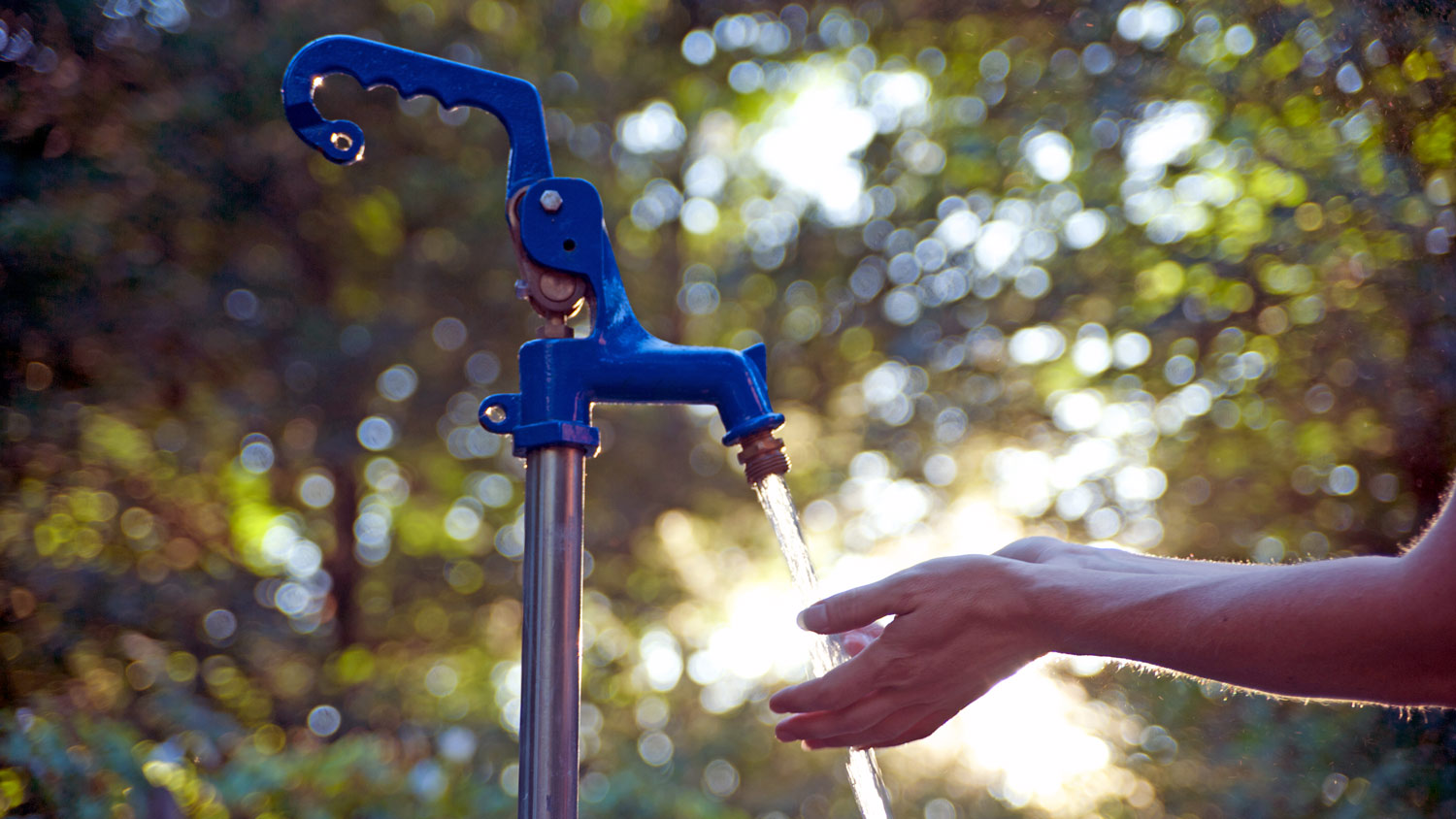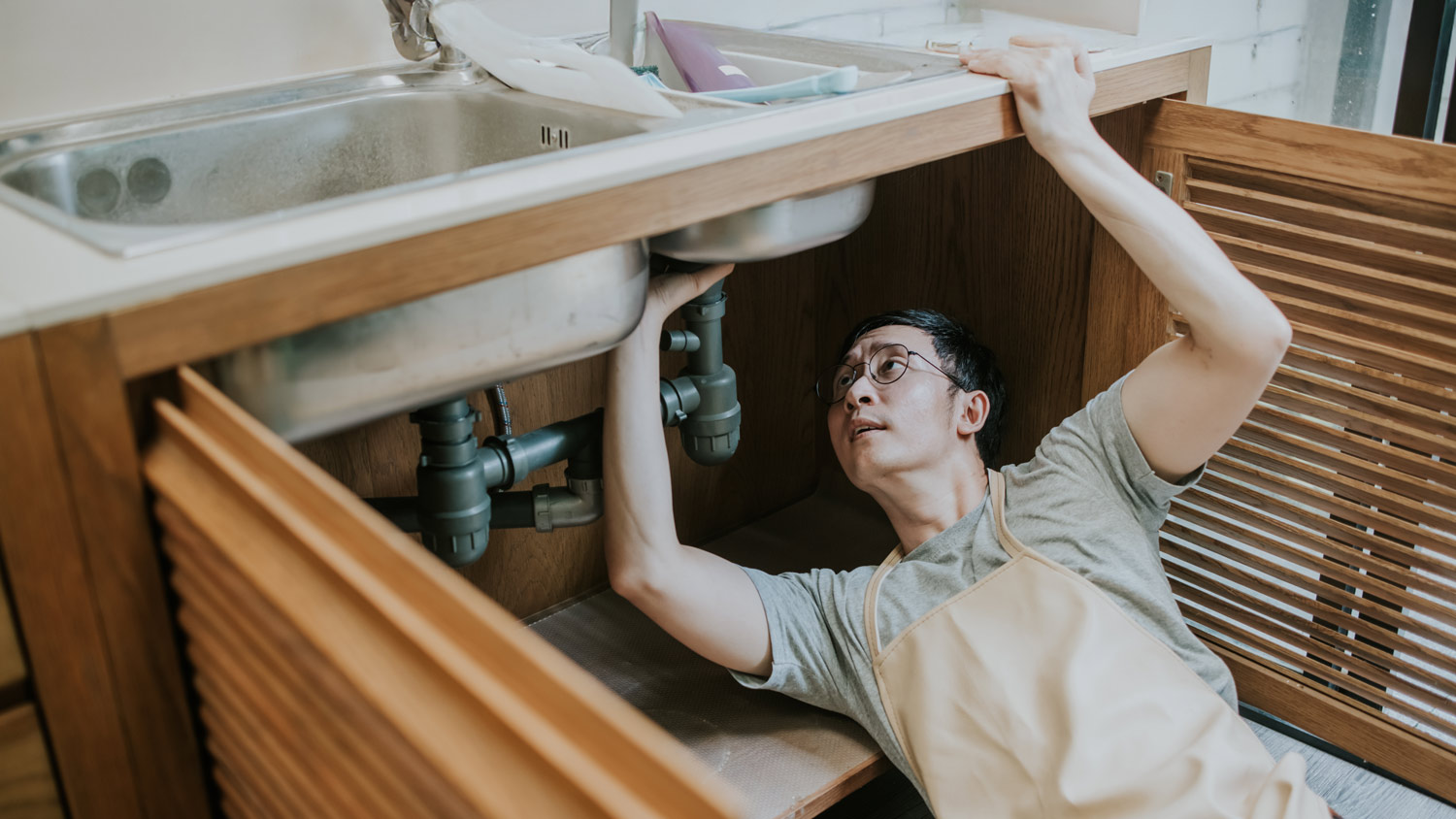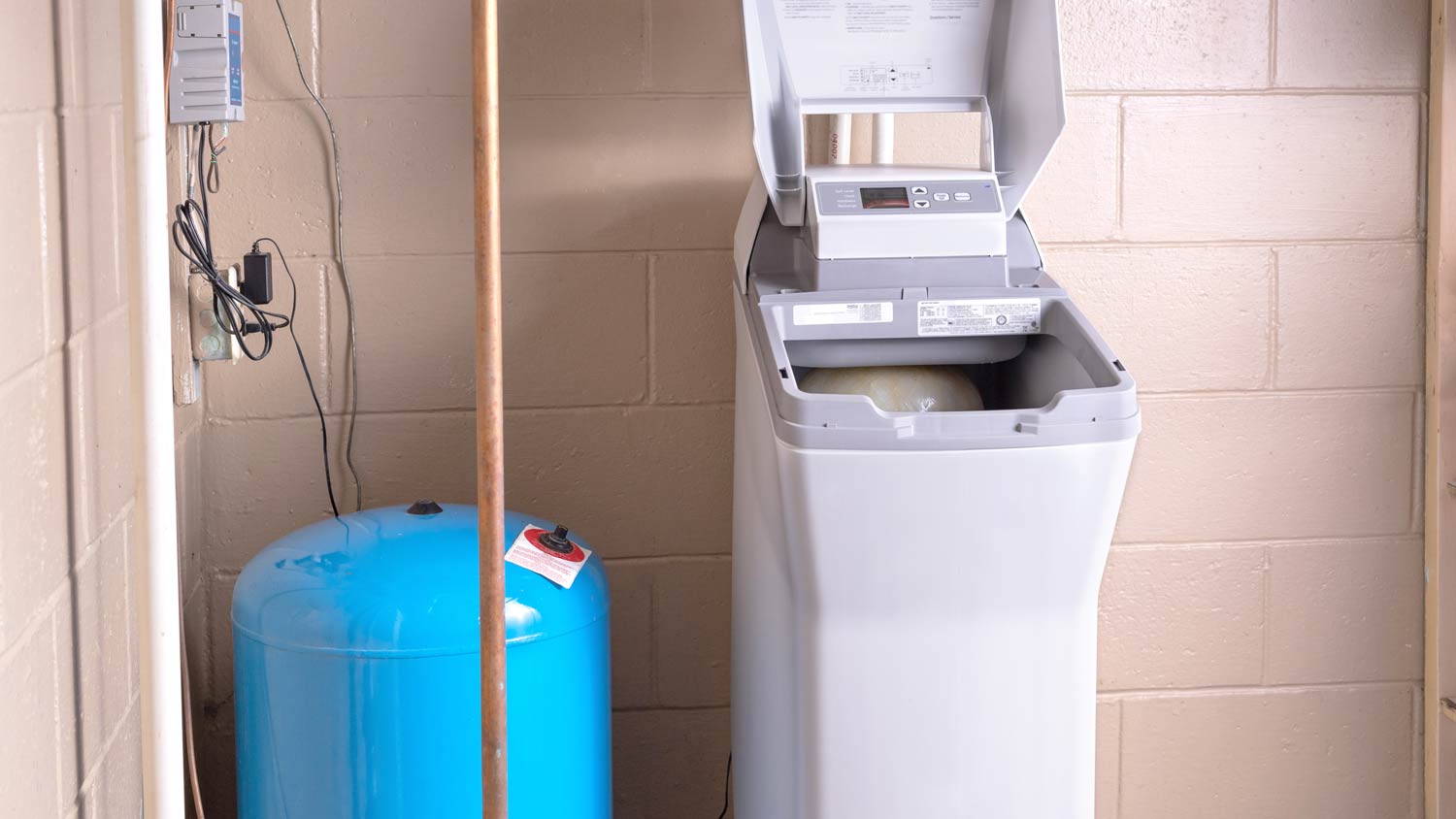
Discover how much well water treatment systems cost, including installation, maintenance, and tips to save. Get expert insights to plan your water system project.
Avoid washing money down the drain with a water softener


Hard water puts additional wear on your washer and other appliances.
The best solution for hard water in your washing machine is to install a whole-home water softener.
Switching to a higher-quality detergent or using more of your current detergent can ct as temporary solutions.
All your dark laundry is showing up with a white residue and you’re ready to tear your hair out. The culprit? Hard water. Not only is it rough on your clothes, it can also shorten the lifespan of your appliance. Here’s everything you need to know about how hard water affects your washing machine and how to cope.
Water hardness exists on a spectrum. The hardness of water depends on how much magnesium, calcium, and other minerals exist per gallon. The harder the water, the higher the mineral content. Hard water is common: Over 80% of the United States has some level of hard water.
If you think you’re one of the many people in the country with hard water, the easy way to find out is to place a call to your municipality. The U.S. Geological Survey also maintains a map that shows the general geographic areas where water hardness occurs. You can also buy a test kit to see if your particular water is hard, which is especially useful if you use a private well.
There are a few things you can do to help your washing machine work better if you live in an area with hard water, as well as some things you can do to prolong the life of your machine.
Examine the metal water filter screen to determine whether you’re dealing with the effects of hard water or some other issue. The screen is located at the water fill/inlet valve on the back of your washer, where the hot and cold water lines connect.
Remove the screens and clean them out with your finger or a soft brush. If you see a buildup of mineral deposits rather than debris, it’s likely a byproduct of hard water.
If you’re unsure whether hard water is the underlying issue or not, you can call in a water specialist near you to perform a professional test.
A water softener is a whole-home solution to a hard water problem. Getting a water softener will not only protect your washing machine; it will also protect all of your appliances that use water, make showering more pleasant, prevent yucky buildup on your dishes, and more.
That’s because a water softener works by removing those minerals from your water before they make their way to your appliances or fixtures. When a water softener regenerates, the minerals are removed from your system entirely.
A whole-home water softening system costs between $500 and $6,000, depending on the features and size of the system.
Since hard water makes it more difficult for the detergent to remove oils and debris from your clothes, adding more laundry detergent can do the trick to ensure your clothes come out clean. Try using 25% more than you normally would, and increase that a little more if you’re still not pleased with the results.
Keep in mind that the minerals in hard water also promote soap scum, so adding detergent will also produce more soap scum. If this is the route you go, make sure you clean out your washing machine more regularly.

Using a higher quality detergent, preferably one with a low pH, will help dissolve those minerals in your hard water. Yes, it’s a little more costly, but it could gain you a few years before you have to replace your washer. Plus, it might cost a little less than using a higher volume of a lower-quality detergent.
Washing your clothing at a higher temperature will help to break down the minerals in hard water. However, using hotter water will drive up your utility bills and potentially cause your clothes to wear out faster, so you may want to use this as a temporary solution while you figure out a more permanent fix.
Because of its high mineral content, hard water can affect your laundry in a number of ways.
Makes your detergent less efficient in combating oil and residue buildup, which means your laundry never gets truly clean
Makes your clothing feel stiff and scratchy
Fades your colored clothing and turns your whites into dishwater gray
It won’t break your washing machine, but hard water could reduce its life span by up to three years.
Hard water can cause mineral buildup in the screens that filter the water and in other internal components, which will eventually restrict water flow into your machine and cause a breakdown. Even with a partial blockage, your machine could be working harder to get your laundry clean, and that added stress will wear down your appliance more quickly.
If you’ve invested in a high-efficiency washing machine, you won’t get the same energy efficiency with hard water as you would if you installed a water softener. That also means higher electric bills, especially if you find yourself running an additional rinse cycle to get that residue off of your clothes.
Usually, repairing a washing machine costs between $50 and $450, with the average sitting at $175. However, hard water can shorten the life of your washer, and replacements are significantly more expensive than repairs. You can expect to pay an average of around $1,100 for a new washing machine. If hard water leads to a replacement one year early on the standard 12-year lifespan, that’s about an extra $100 you’re paying per replacement over time.
Also, if the hard water corrodes your pipes and causes water damage to your home, water damage restoration costs fall between $1,200 and $5,000. Solving these problems before they occur can save you money and a whole lot of clean-up.
Kind of. There are washing machines with filters built in to get the calcium and magnesium out of the water. However, if you’re having hard water problems with your washing machine, odds are that it’s affecting other areas of your house. Your best bet is to install a whole home water softener.
That way, you protect all your appliances and fixtures and take care of all your problems with one device. Plus, water softeners can last for up to 25 years, meaning you’ll save more over time by installing a water softener than you would replacing your washing machine due to hard water damage.
From average costs to expert advice, get all the answers you need to get your job done.

Discover how much well water treatment systems cost, including installation, maintenance, and tips to save. Get expert insights to plan your water system project.

Wondering about water treatment system costs? Learn average prices, key cost factors, and ways to save on installation and maintenance for your home.

Your cost to install an under-sink water filter will depend on the type and size of system you choose and whether you need professional installation.

Need to soften the water coming into your home? Use this guide to check if your house is pre-plumbed for a water softener to make the process a little easier.

Hard water puts a damper on your pipes. Learn how to clean your water softener to keep the system running efficiently and prevent potential damage.

Trying to decide between the different types of water softeners? Our guide will help you choose the right salt-based or salt-free option for your home.